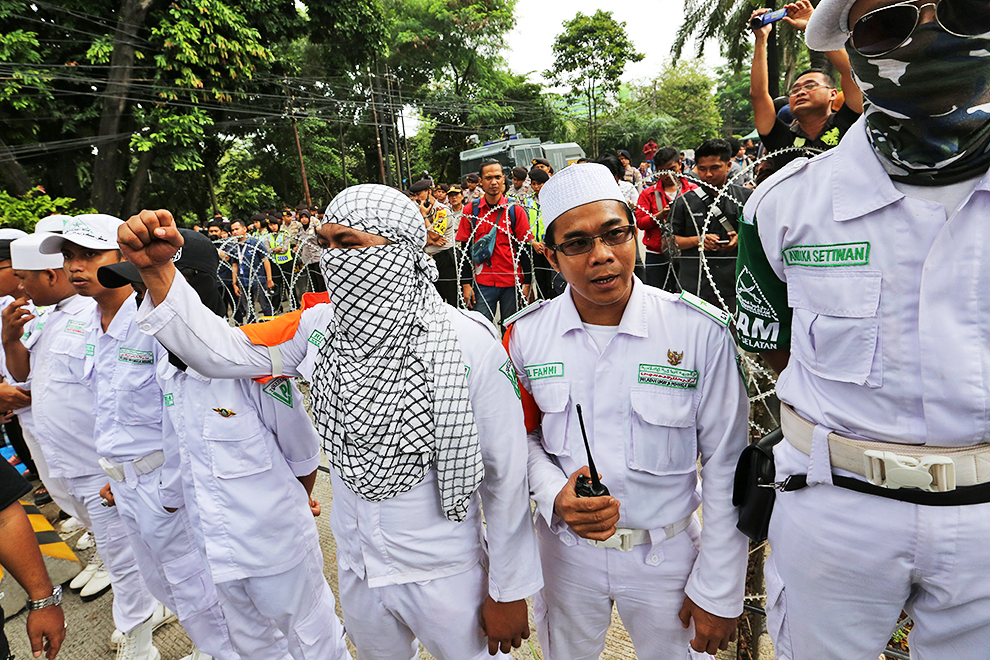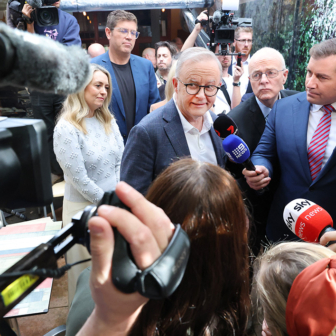When residents of Jakarta, Indonesia’s sprawling capital, go to the polls on 19 April, they will be presented with an unusually stark choice between religious solidarity and governmental performance. The election pits incumbent governor Basuki Tjahaja Purnama, commonly known as Ahok, against former education and culture minister Anies Baswedan. The campaign so far has highlighted Indonesia’s growing religious and ethnic polarisation.
While it’s not unusual for members of ethnic and religious minorities to win local elections in Indonesia, Ahok’s campaign is testing the limits of Indonesian tolerance. He is a member of the ethnic Chinese community, a group that has been subject to a long history of formal and informal discrimination. And he is also a Christian in a city that is 85 per cent Muslim, and it is in this respect that he is most vulnerable.
Islamist activists and grassroots preachers campaigned against Ahok by appealing to a Qur’anic verse that, they say, prohibits rule by non-believers over the faithful. In response, Ahok told an audience last September that voters were being “fooled” using the verse. His comments were recorded and quickly went viral online. His opponents accused him of insulting the Qur’an, and massive street protests followed. Islamist organisations like the Islamic Defenders Front showed that they have phenomenal mobilising power.
The protests and associated outcry placed enormous pressure on the national government, and Ahok was charged with blasphemy. His trial is continuing. Predictably, his approval rating plunged. Although he eked out a first-round victory in February, he has consistently lagged in the polls leading to this week’s second round. This is despite the fact that – having taken over as Jakarta’s governor when Joko Widodo, his then superior, was elected as Indonesia’s president in 2014 – he was previously favoured to win. He is widely admired in Jakarta for various government policies, especially improvements in healthcare, education, transportation, infrastructure and welfare programs. He is also admired for his tongue-lashing of bureaucrats and legislators he accuses of corruption or incompetence.
Yet numerous surveys have shown that religious solidarity is trumping government performance in this election. A poll conducted last month found that 66 per cent of respondents were satisfied or very satisfied with Ahok’s performance as governor. Yet only 41 per cent said they would vote for him, with 49 per cent favouring his opponent. For 21.6 per cent of respondents, religion was the main factor determining their choice of candidate, whereas only 16.3 per cent cited a record of achievement. The obvious conclusion is that a significant proportion of the city’s Muslim voters, despite being satisfied with the work of their governor, will not vote for him for religious reasons.
When Indonesian electoral candidates make ethnic or religious appeals, they mostly adopt a benign approach: they emphasise their membership of a particular ethnic or religious group without denigrating others. By contrast, the campaign against Ahok has been relentlessly negative.
At the grassroots, a legion of preachers and activists have striven to convince Muslim voters not only that Ahok insulted their religion, but also that it is forbidden to vote for a kafir – an unbeliever. Friday sermons at the city’s mosques have become important campaign arenas. Fevered rumours about floods of Chinese nationals illegally planning to vote for Ahok have swept through social media, fanned by Anies Baswedan’s backers. There has been a resurgence of racist denigration of ethnic Chinese of a sort not seen for years.
Though Anies – a Muslim intellectual who previously had cultivated a reputation as a pluralist – has not personally engaged in crude attacks on Ahok, he has instead run a dog-whistle campaign signalling his Muslim credentials and reaching out to extremist groups like the Islamic Defenders Front. An army of proxies is mobilising religious and ethnic opinion against Ahok on his behalf.
This tide of ethnic and religious mobilisation will likely push Ahok from power. The unanswered question is the extent to which the election represents a marker of broader social and political transformation. On the one hand, the election is an unusual test case for Indonesian pluralism, given Ahok’s double-minority status and the blasphemy case’s contribution to his vulnerability. On the other hand, observers have long noted growing pietism in Indonesia’s Muslim population as well as increasing assertiveness in those espousing intolerant religious ideas.
Jakarta sets the pace for national politics, and politicians may see this election as a toolkit that can be used in other contests, including the 2019 presidential race. If ethnic and religious sectarian politics push Ahok’s opponent over the line, it would bode poorly for the future of Indonesia’s pluralistic democracy. •




